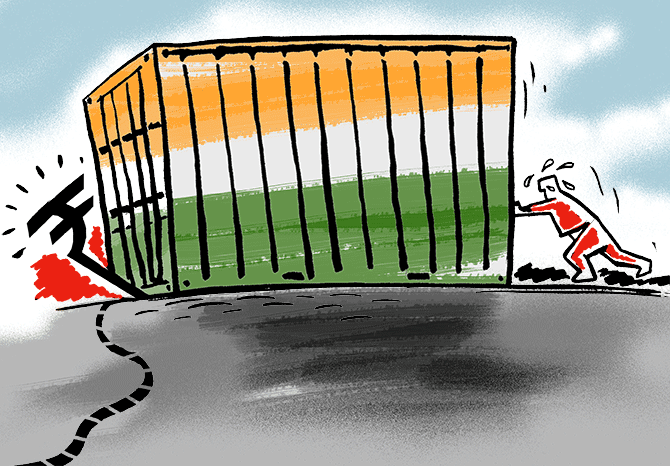Govt plans short-term foreign trade policy, may release before Sep
The government may roll out a new foreign trade policy (FTP) of a shorter term of two-three years in a bid to keep pace with the fast-evolving scenarios in international trade which have been triggered by recent disruptions, such as the pandemic and the Russia-Ukraine war.
An FTP is an elaborate policy guideline and strategy to promote the export of goods and services, with a duration of five years usually.
The existing policy came into force on April 1, 2015, and was valid for five years, before multiple extensions.
“We may come up with a foreign trade policy for two-three years; the aim is to release it before September.
“Earlier, we had put out fiscal incentives under the FTP but that’s not the case anymore.
“The government has already announced export-boosting schemes like RoSCTL (Rebate of State & Central Taxes and Levies) and RoDTEP (Remissions of Duties and Taxes on Exported Products) A time-to-time review of the policy is crucial and a shorter time frame will help,” a senior government official told Business Standard.
“Besides, the five-year tenure of the FTP was in line with the (duration of the) five-year plan, which doesn’t exist anymore,” the official said.
An industry representative said that a short-term FTP shall be a good move because the general elections are just two years away.
“It makes sense. The new government (new or the existing one) should be given the mandate to announce a new policy, as it may have a different focus area or agenda,” the industry representative said.
The new policy is much-awaited, following the extension of the existing policy for more than two years.
A new FTP was deferred and the current policy was extended beyond March 2020, as businesses grappled with the disruption caused by Covid-19.
The policy was extended from time to time and thereafter until September 30, 2022, as the government did not have anything substantial to roll out in the new policy in the absence of a new incentive scheme.
Exporters currently get support from schemes such as interest equalisation scheme, transport subsidy scheme, RoSCTL, and RoDTEP.
Various export incentive schemes had to be phased out after India faced challenges at the World Trade Organization (WTO) over the same.
Sunil H Talati, chairman, Services Export Promotion Council (SEPC), said since an ambitious $350-billion services export target has been set for the current financial year, there is a need for some fiscal incentives in the upcoming foreign trade policy.
“While the government has made it clear that the SEIS (service exports from India scheme) will be discontinued, we have requested the DGFT (Directorate General of Foreign Trade) to include the scheme in the upcoming FTP, perhaps with more stringent norms,” Talati said.
Sectors, such as education, aviation, tourism, and hospitality, had to bear the brunt of the Covid pandemic and this makes a case for rolling out stronger incentives.
In the upcoming FTP, one of the key highlights shall be the ‘Districts as Export Hubs’ scheme.
Under the scheme, the focus will be on 50 districts that have products with huge export potential.
It will be a centrally sponsored scheme, with the majority contribution by the Centre and the remaining by the states.
“The FTP could give a great push to e-commerce retail exports because e-commerce trade is growing leaps and bounds.
“We are not looking for much fiscal benefit; we only want whatever benefit is available to exports, in general. Since most exporters in e-commerce are new players, a chapter in the FTP will help them know benefits and processes in the same place,” said Ajai Sahai, director-general (DG) and chief executive officer (CEO), Federation of Indian Export Organisations (FIEO).
Source: Read Full Article

